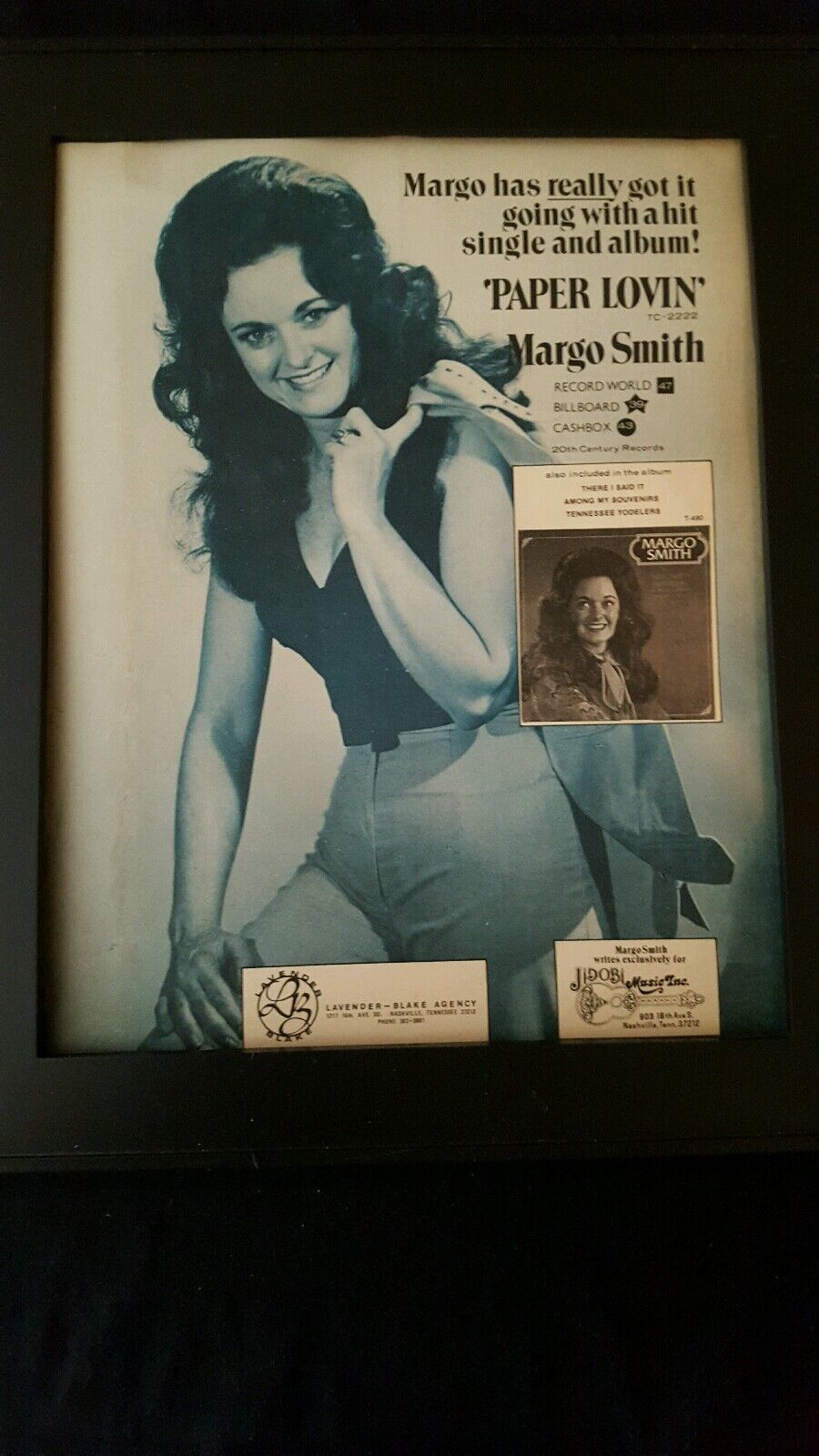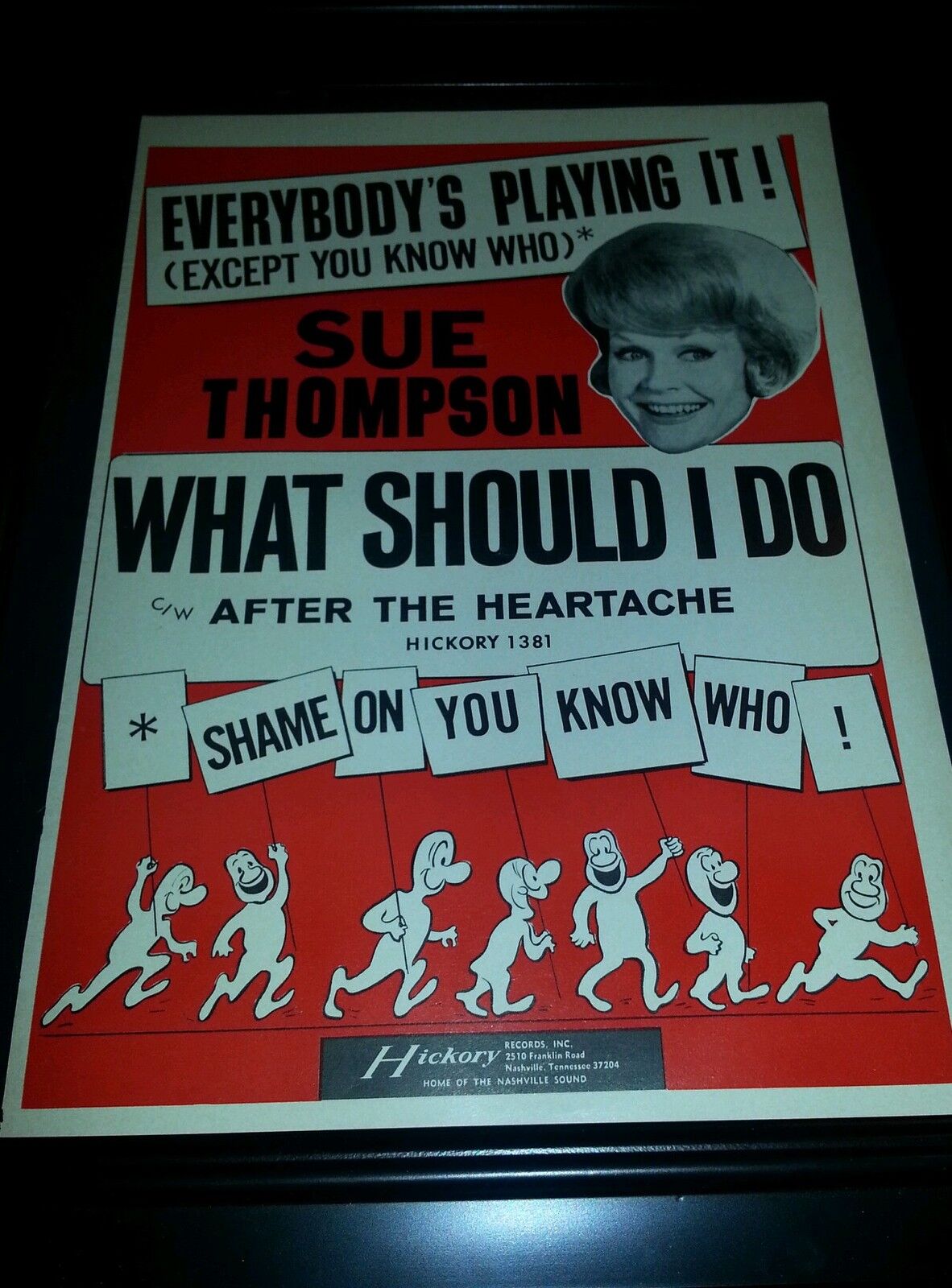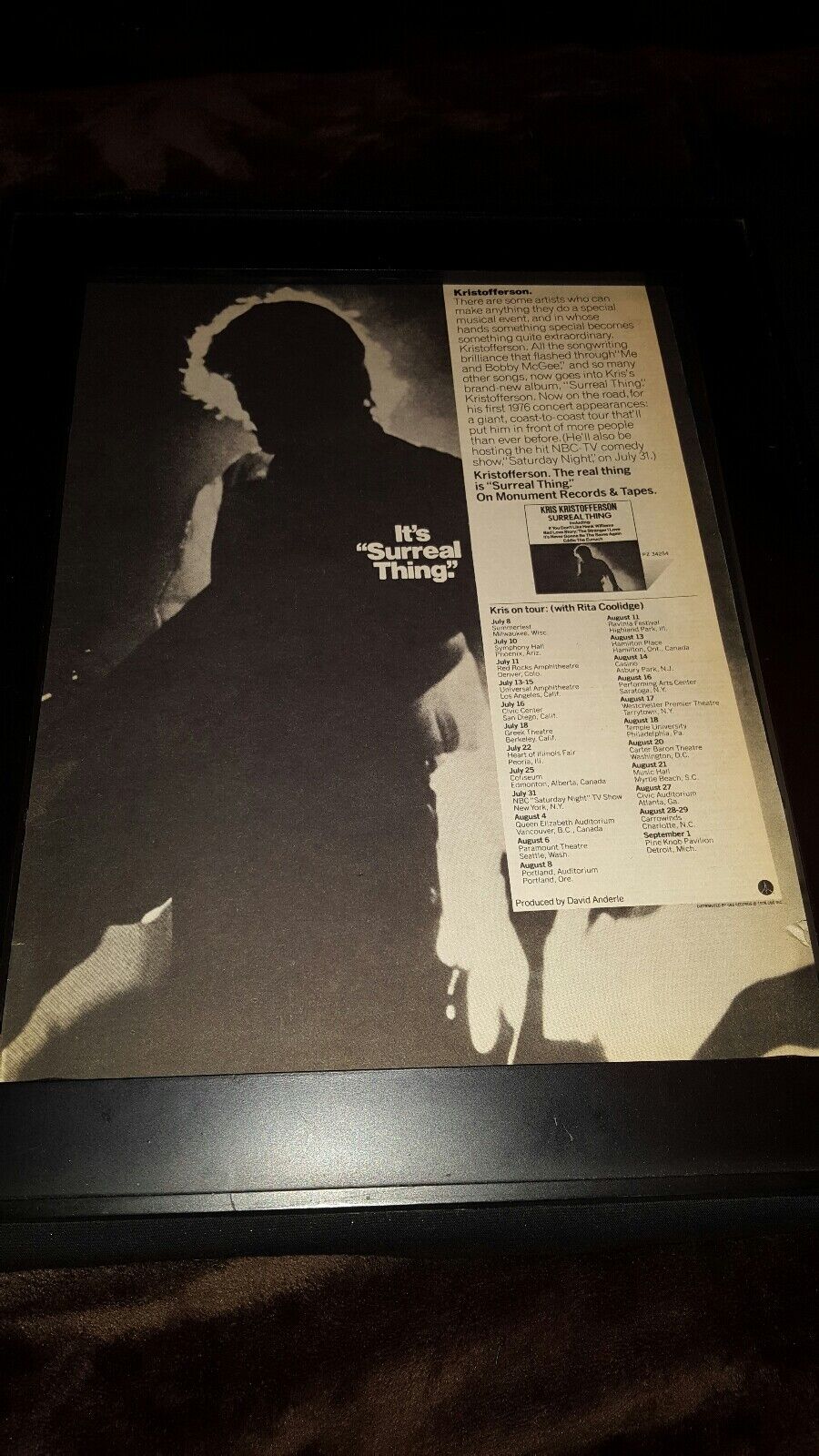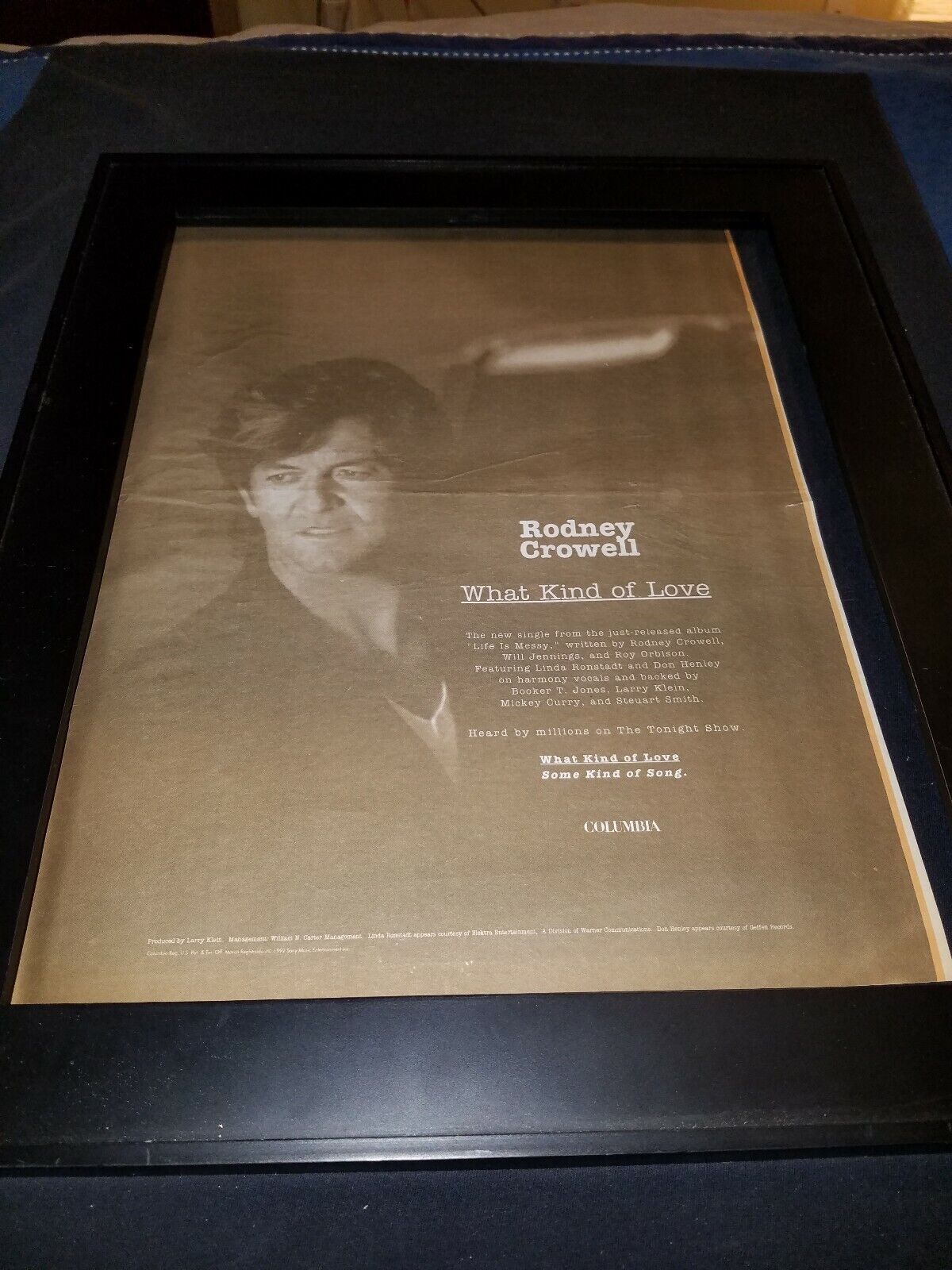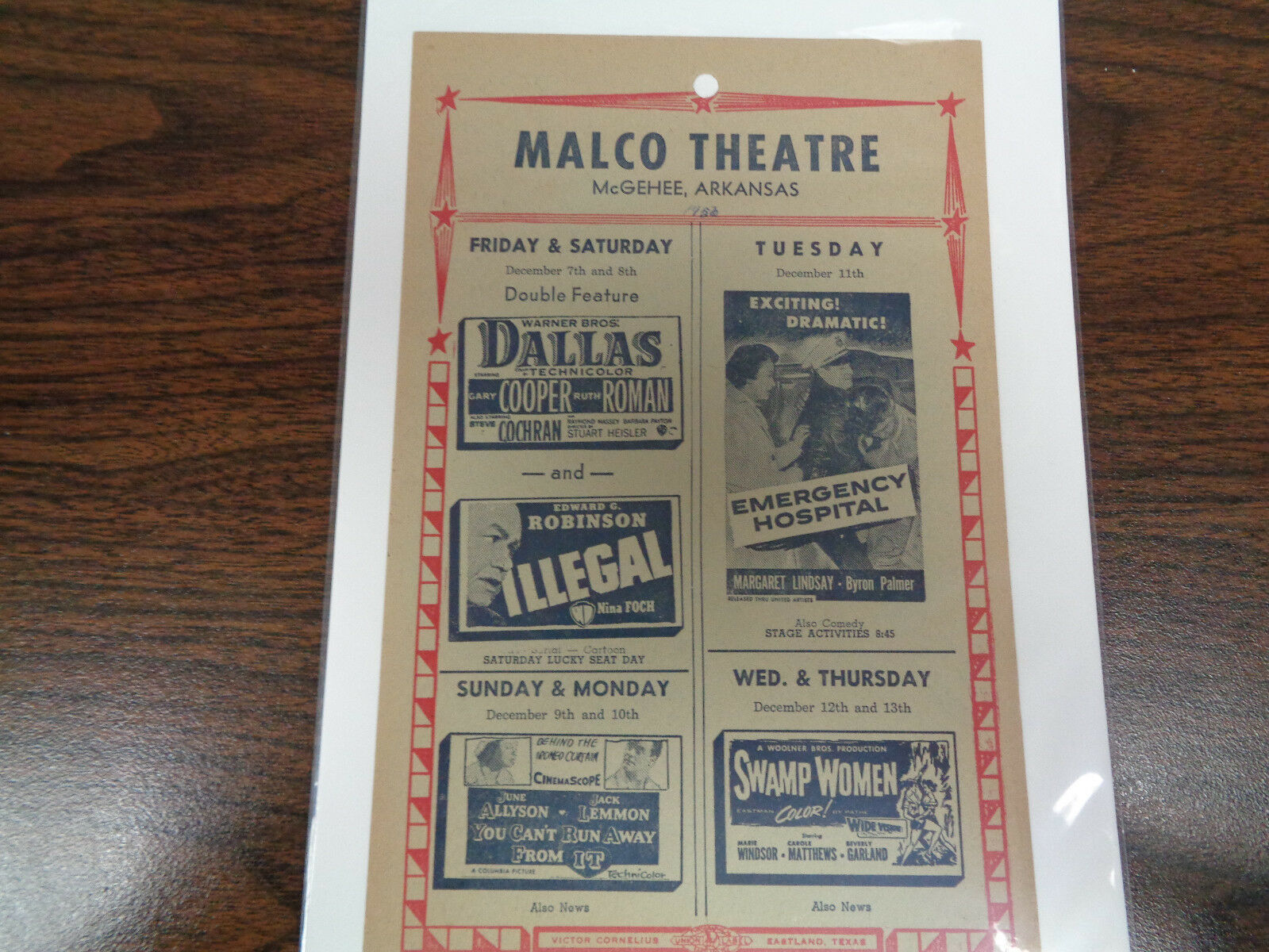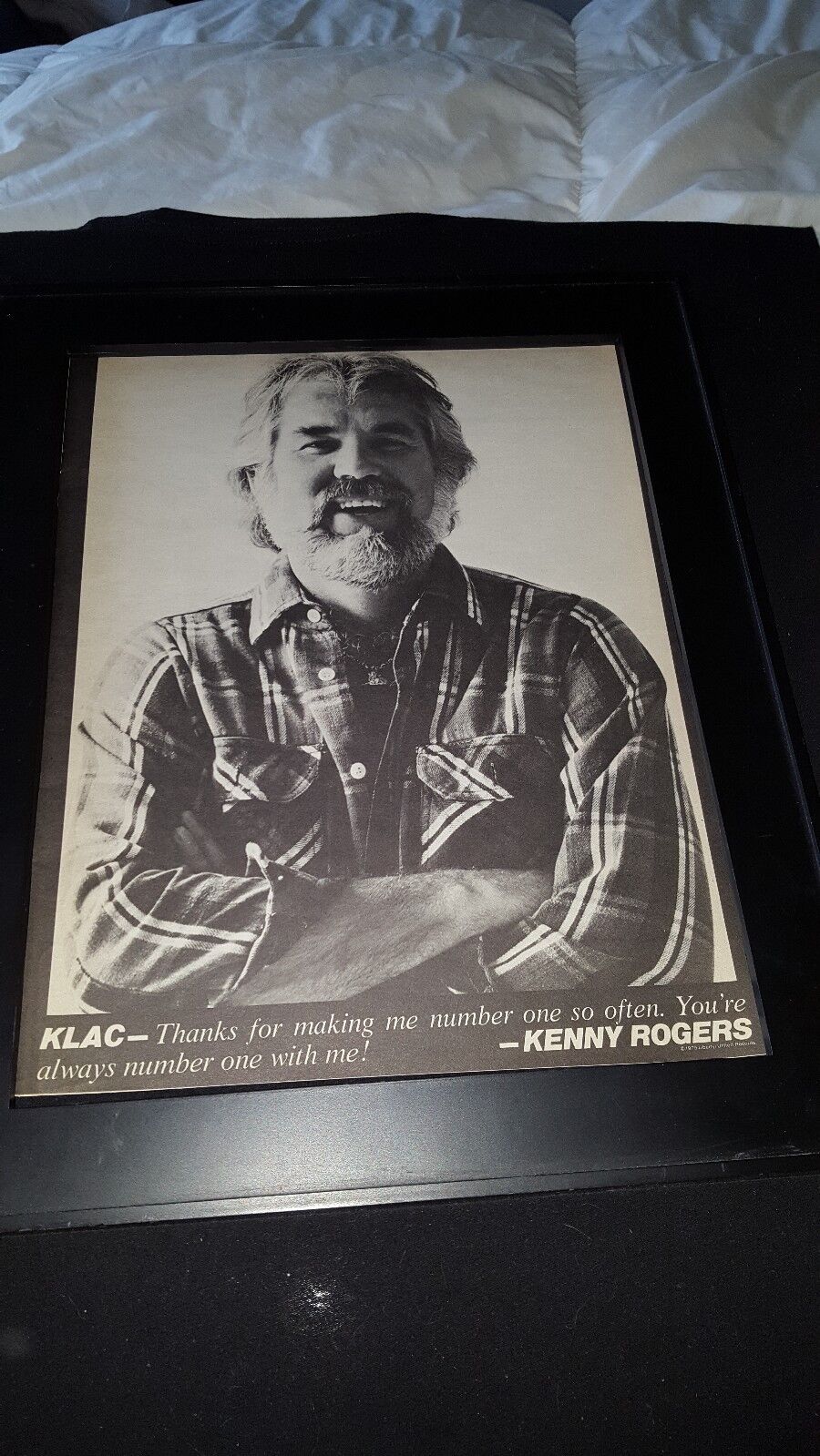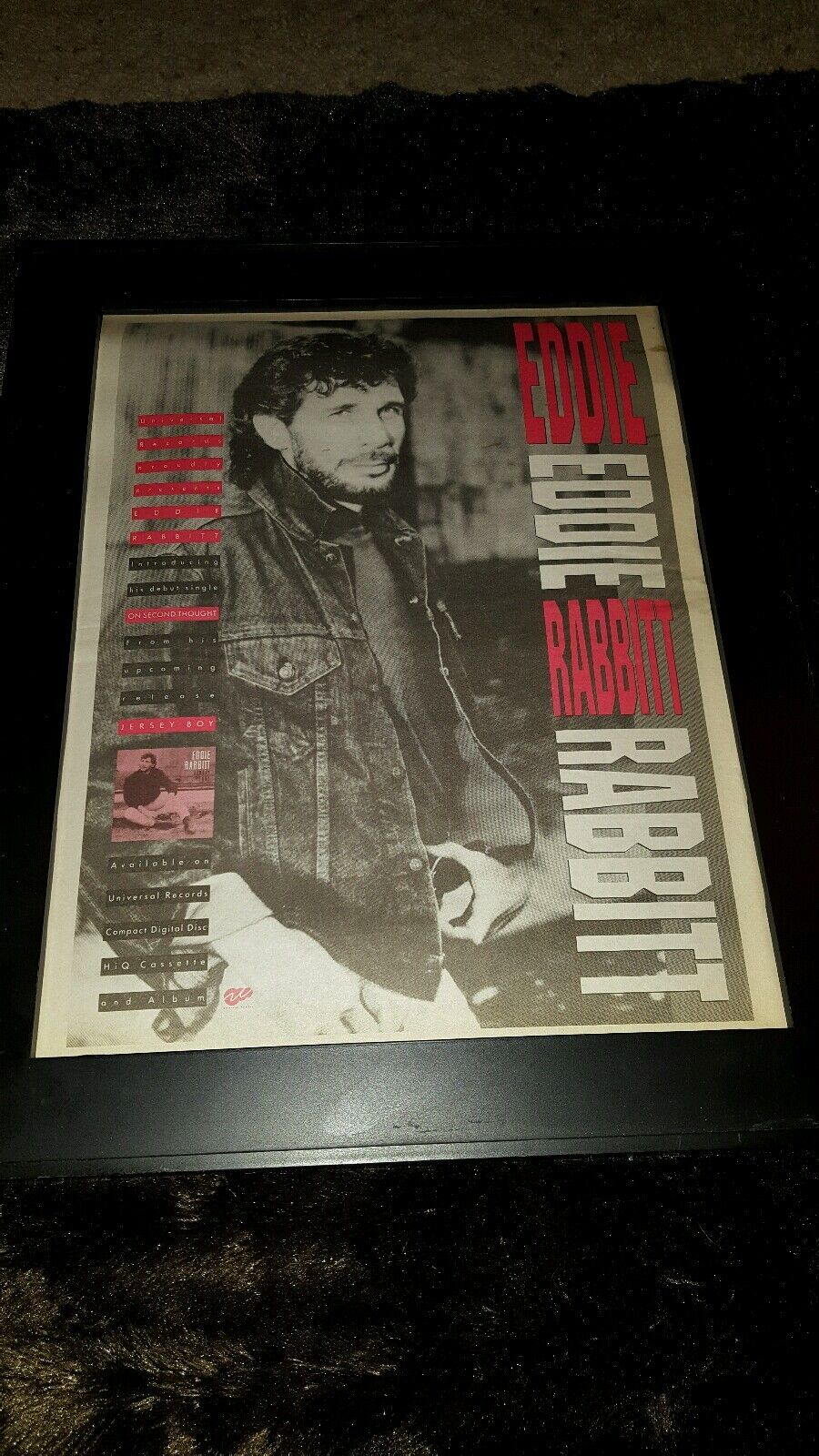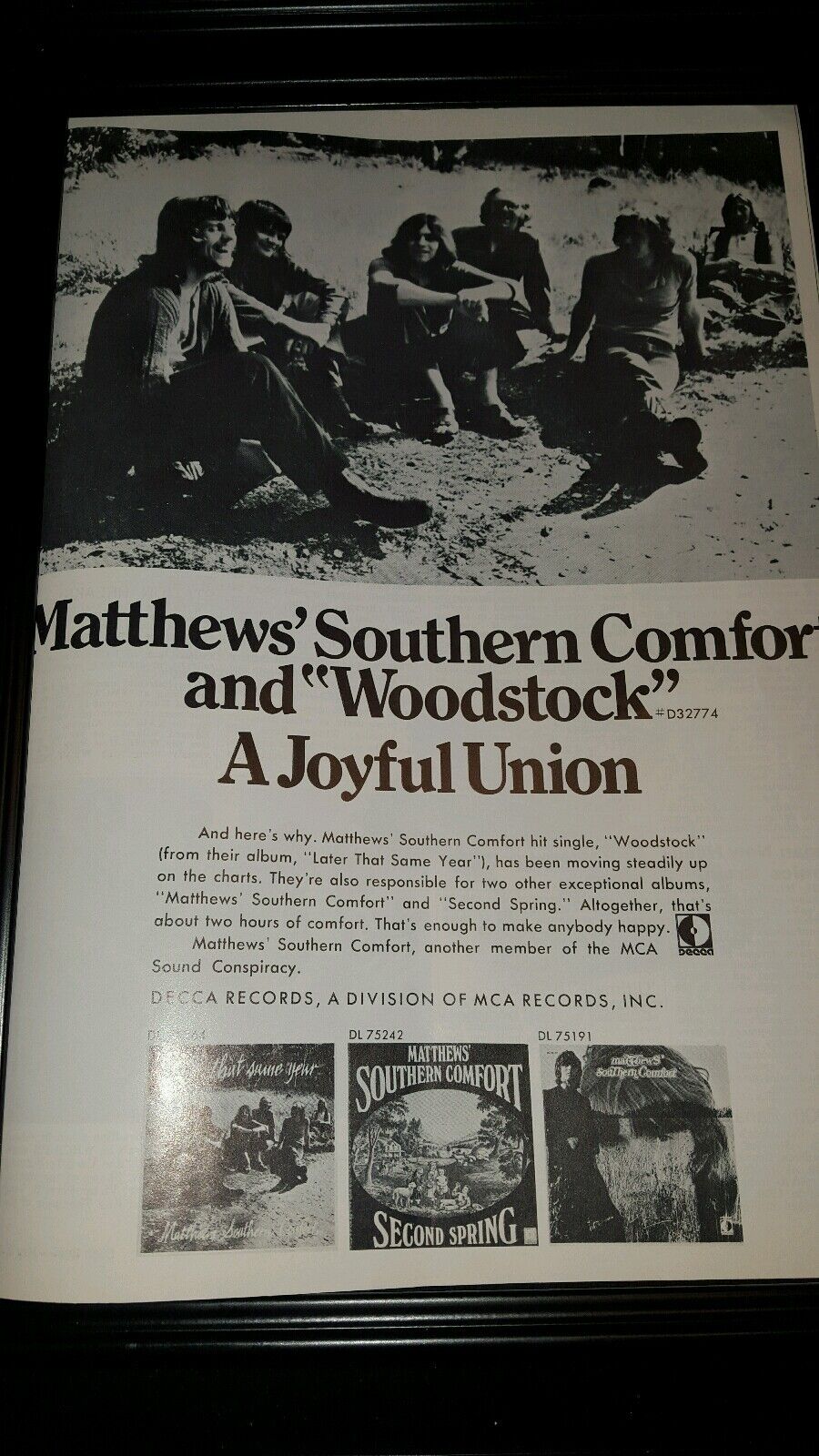-40%
1969 Stonewall Jackson Country Music Singer - 4-Page Vintage Article
$ 7.44
- Description
- Size Guide
Description
1969 Stonewall Jackson Country Music Singer - 4-Page Vintage ArticleOriginal, vintage magazine article
Page Size: Approx. 8" x 11" (21 cm x 28 cm) each page
Condition: Good
I was born third of three child-
ren, the sixth day of November
1932, to Mr. and Mrs. Waymond
David Jackson, in a railroad
shack, in a railroad and logging
settlement near Tabor City, North
Carolina.
My daddy was an engineer that
had worked his way up to this
position from a job he took at a
very young age on a maintenance
crew. Cancer took his life
at twenty-eight when I was two
years old. Before his death he
christened me Stonewall Jackson
named for Thomas Jonathan
Jackson, as the family tree traces
back to the general.
Of course, this left my mother
a widow with three children to
feed. Being already poor didn’t
help much, except being poor
sometimes makes you just a little
better braced for life. We lived
in the house between two and
three years with my daddy’s
mother and step grandfather
while my mother worked day work
in tobacco or hoeing in the fields.
The kind of work my mother and
oldest brother could do in this part
of the country, in North Carolina,
could have been more plentiful,
so she decided we would go to
Georgia where my daddy’s only
living brother had a farm. In Geor-
gia there is also cotton work as
well as the tobacco. So we hitch-
hiked our way to South Georgia.
For those who don’t know what
hitchhiking is, that is gettin there
any way you can—including
walking . A toy red wagon carried
most of our belongings. Me being
a little over four, I caught a
nap now and then on top of the
wagon. Up to this point, due to my
age and memory, most of this
story was gathered from the fam-
ily and elderly friends. Although I
de remember parts of this long
tiresome dirty, hungry trip to
Georgia. Like the long ride on an
old rickety wagon and a time
when for a small boy I was my
hungriest. A farm family gave us
some food and we spread an old
quilt down along side the road like
a picnic. The years that followed
were hard and easy to remember.
Finally we reached my uncle’s
farm near Moultrie, Georgia,
when I say my uncle’s farm it
may sound like I mean the
world’s richest landowner - not
so - he was a man only making
a descent living by very hard
work for his own family. He
wanted to help what he could
- so we moved into an old shack
on his place and my mother and
oldest brother went to work in
the fields while Waymond, the
middleaged of the three kept me
and with Gods help we survived.
I recall I was plowing at the
age of eight and pulling a cros-
cut saw in the woods by nine.
We got by the best we could
like this, saving all we could in
the summer, so us boys could
go to school in the winter, all
getting a minimum education.
When I was sixteen I wire-
worked my way into the Army
by having my birth record
changed. At this time I had been
playing a guitar about two years
and had several songs that I had
written myself. My Army career
didn’t last very long-Uncle Sam
got wise to me and out I went.
At this time my mother had a new
husband and family so I felt
pretty much on my own at least
I already had been since I was
fourteen. I went on up to North
Carolina and lived with my grand-
mother until I was seventeen and
then I joined the Navy.
This is where most of my
country music career started. I
started writing more and I found
my fellow sailors had quite an
interest in my style of singing
and pickin. “Don’t Be Angry*’ and
songs like that put my sailor pals
to sleep many nights. I had the
use of a real good guitar. The
Captain of my ship the U. S. S.
Kittywake loved country music
so he let me borrow and keep
his guitar extensively. This was a
great help, since the crew and
myself enjoyed the playing and
singing. The Captain rigged up a
sound system and when we had
movies aboard he allowed me to
put on a short show just before
the movies.
By the time I came out of the
Navy in 1954, I wanted to make
country music my career. Realiz-
ing it takes a lot of money and
time, in most cases, to get started,
I was scared to tackle the job
broke. I took my mustering out
pay which is not enough for such
an undertaking and went back to
South Georgia-with intentions to
work day and night and save me
up some money, so I could go into
Country Music and work, I did.
I got myself a half-crop farm
and worked as fast and hard as
I could work. Besides my regular
crop I’d work Sunday afternoon
and at night and Sunday after
church. I was only trying to fulfill
my goal the only way I knew-hard
work.
I farmed this way all summer
and in the winter I cared for the
big end of a two man chain saw
in the swamp, lending a helping
hand to the paper industries (cut-
ting pulpwood). In two years I’d
saved enough I thought to try to
make it in Country Music. I had a
little money and a 1955 pickup
truck. With a truck I had a home—
so giving my folks my other be-
longings I headed for Nashville,
Tennessee.
The first thing I intended to
do was to get some songs cut
by the leading artists. So, on my
way into Nashville, I checked in
the York Motel across the street
from Acuff-Rose Publishing Com-
pany. The next morning I went
over to see Mr. Rose, the son of
the late Fred Rose, that gave
Hank Williams his start. We cut
some dubs on “Don’t Be Angry.’’
‘Gettin Older’’ and several
others. Mr. Rose seemed to like
the songs so he took two or three
for publication and to play to the
other artists. I went back to my
room and in about an hour I re-
ceived a phone call from Mr. Wess
Rose. He told me he had called
WSM Radio, the station that owns
and operates the Grand 01 Opry,
and told them about me and asked
if they would set up an audition
for me the next day, and asked
me if I’d like to try out for the
Opry. I was more than stunned
and told him I sure appreciated
his interest and I’d try to do my
best.
The next day found me and my
pickup truck at WSM Radio Sta-
tion. Being a lad straight from
the country made it a bit diffi-
cult finding my way around in
even this large a city. When I
found WSM Studios, I asked the
receptionist about the audition
and where I could find Mr. George
D. Hayes, (Judge Hayes) as he
is known “the Solom Ole Judge.”
The receptionist went down the...
13998-AL-6905-71

